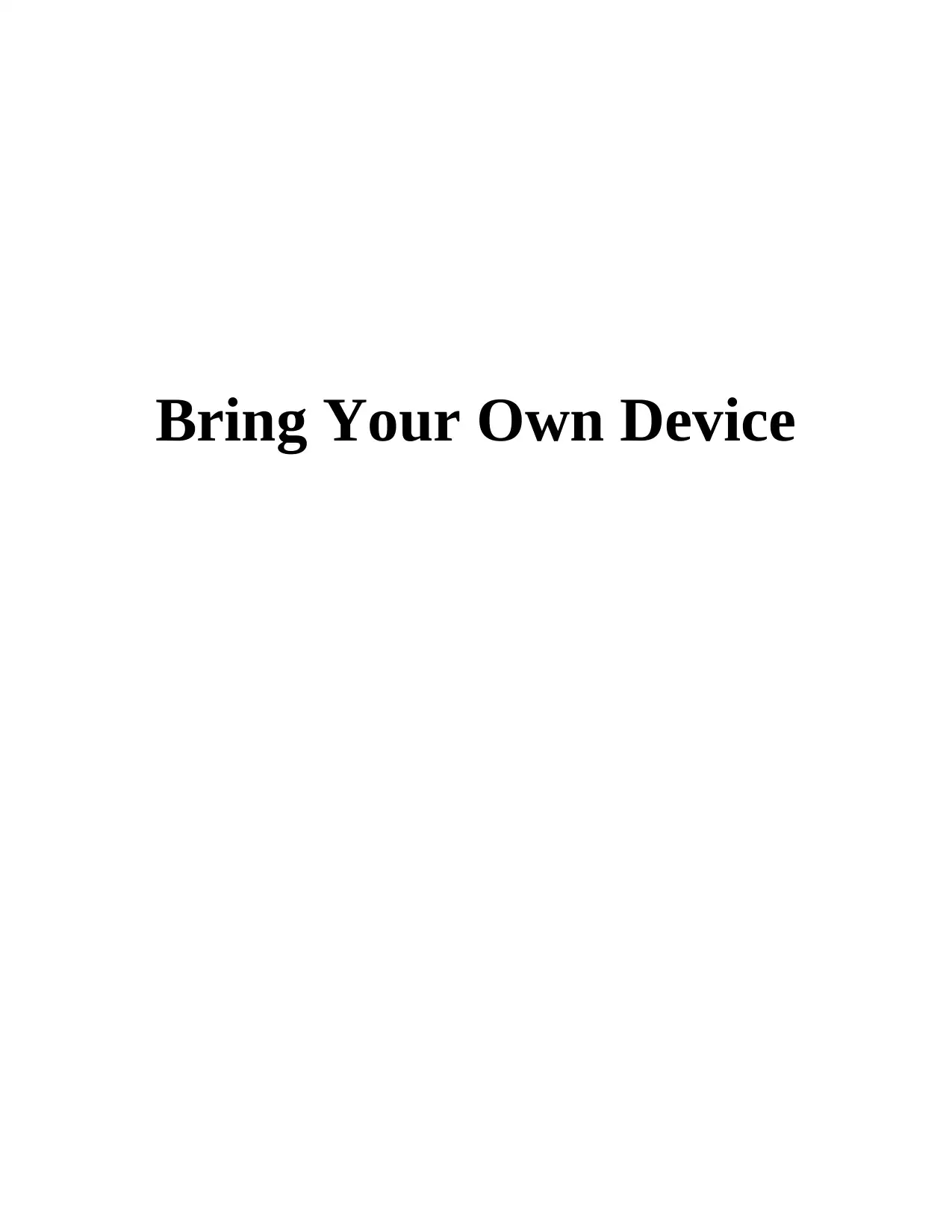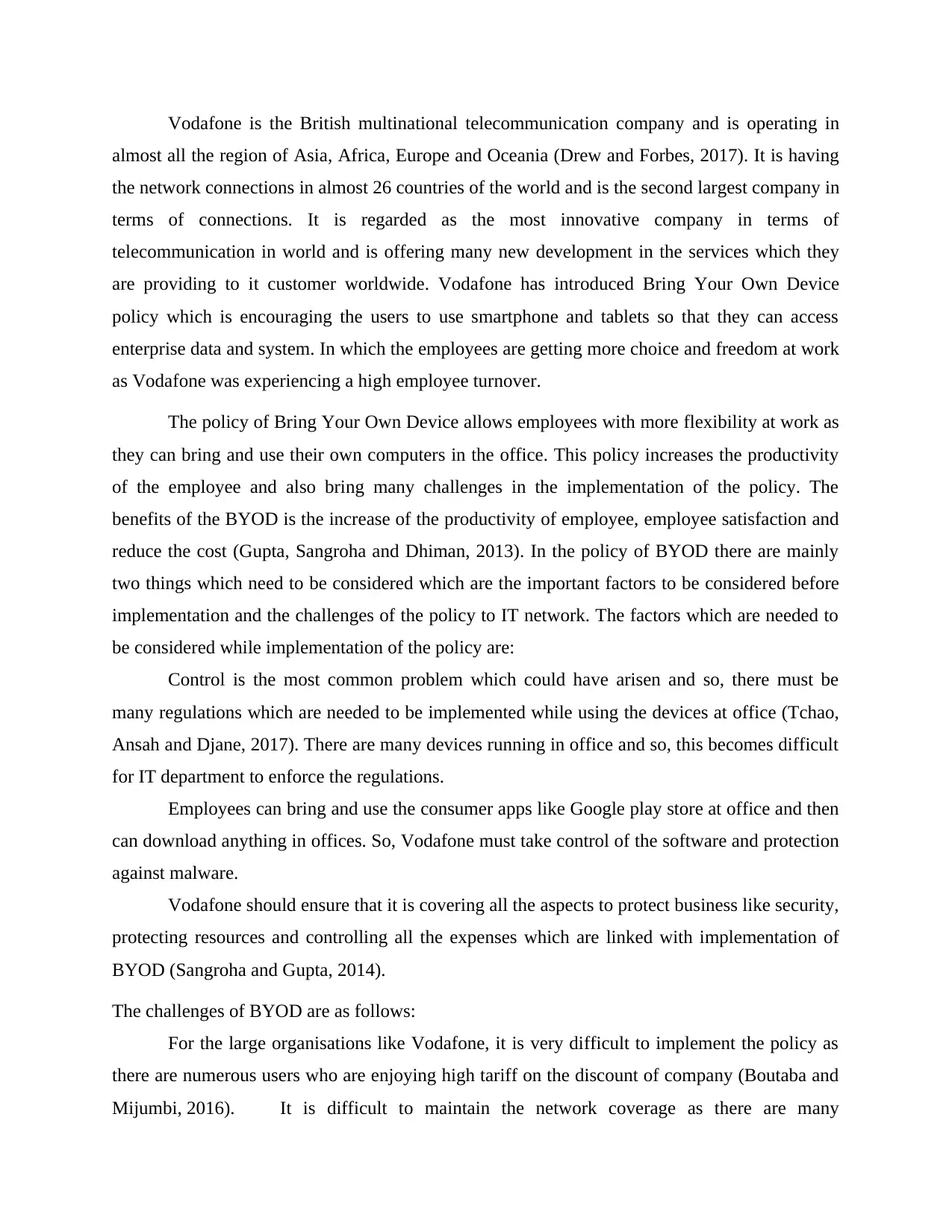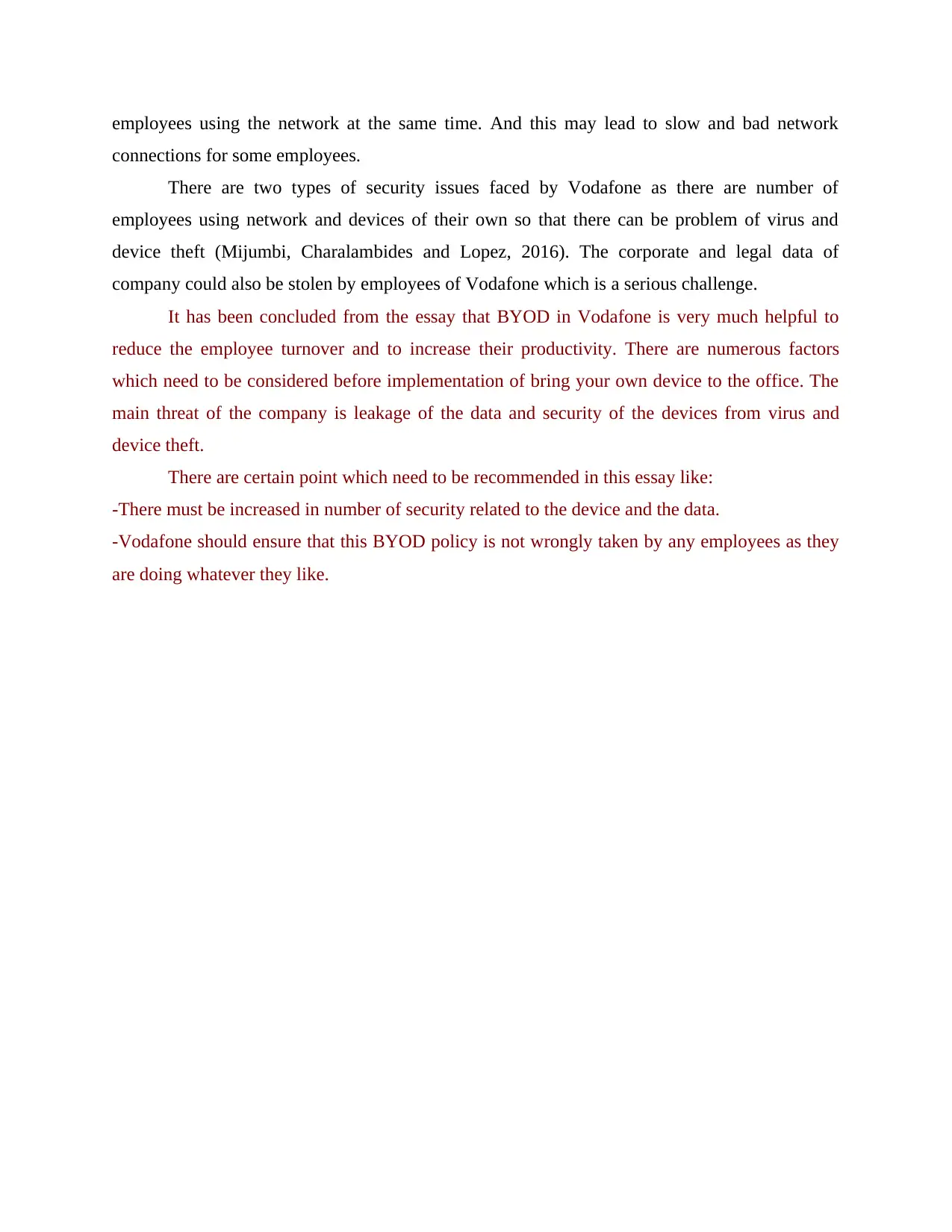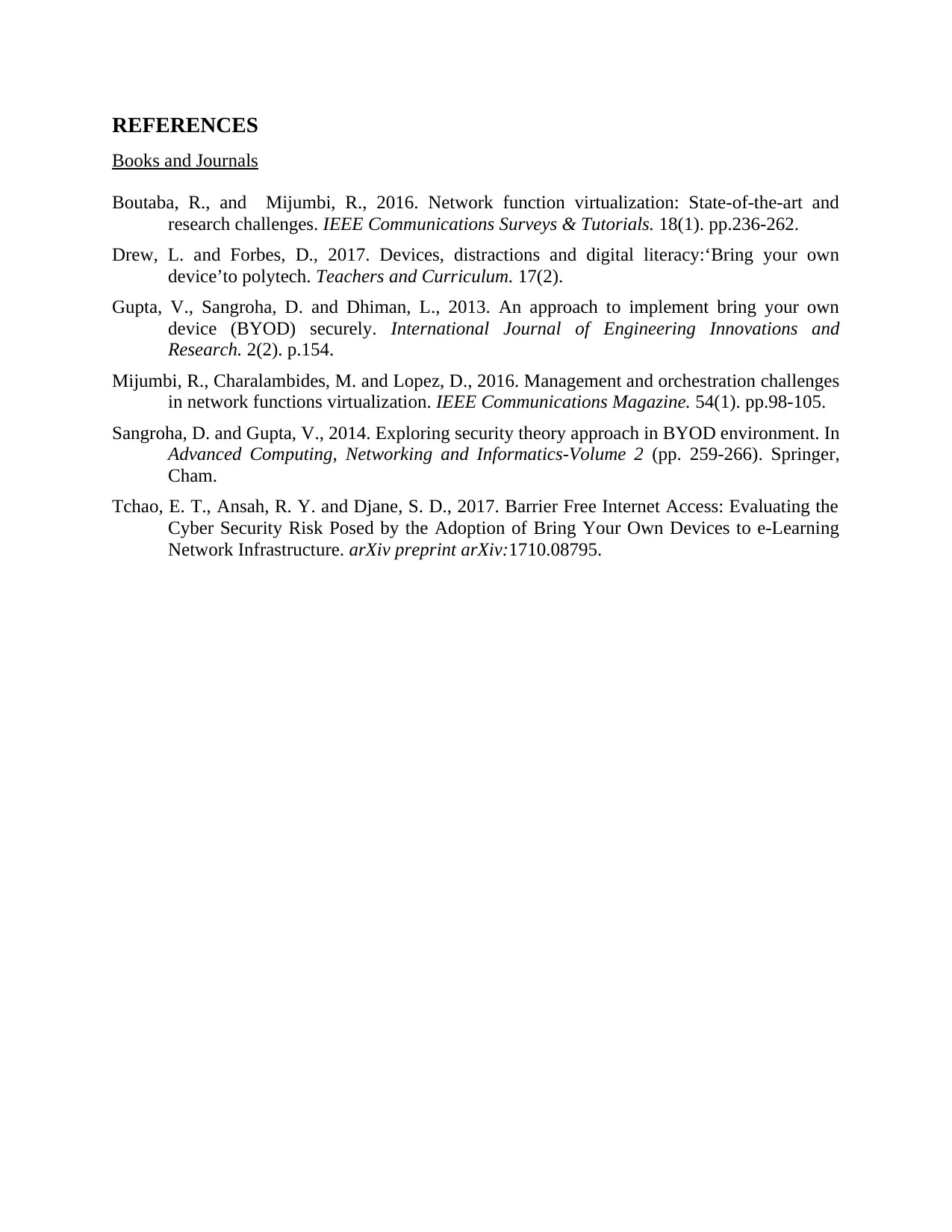Vodafone's BYOD Policy: Benefits, Challenges, and Recommendations
VerifiedAdded on 2020/06/04
|4
|914
|70
Essay
AI Summary
This essay provides an analysis of Vodafone's Bring Your Own Device (BYOD) policy, exploring its implementation, benefits, and challenges. It begins by introducing Vodafone and its adoption of BYOD to increase employee choice and flexibility, addressing high employee turnover. The essay discusses how BYOD can boost productivity and employee satisfaction while reducing costs. It identifies key factors to consider during BYOD implementation, such as control over device usage and security measures to protect against malware. The challenges of BYOD, including network coverage, security issues like virus threats and data theft, are also discussed. The conclusion emphasizes the policy's positive impact on employee retention and productivity, recommending increased security measures and guidelines to ensure responsible device usage. The essay provides recommendations for Vodafone to improve its BYOD strategy, including enhanced security protocols and clearer employee guidelines.
1 out of 4











![[object Object]](/_next/static/media/star-bottom.7253800d.svg)